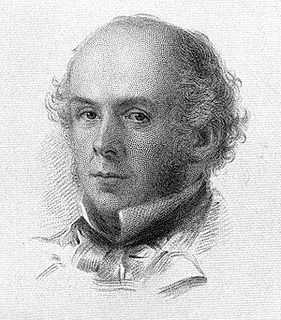A Quote by Arthur Hugh Clough
Action will furnish belief,-but will that belief be the true one? This is the point, you know.
Related Quotes
Until the content of a belief is made clear, the appeal to accept the belief on faith is beside the point, for one would not know what one has accepted. The request for the meaning of a religious belief is logically prior to the question of accepting that belief on faith or to the question of whether that belief constitutes knowledge.
Pragmatism asks its usual question. "Grant an idea or belief to be true," it says, "what concrete difference will its being true make in anyone's actual life? How will the truth be realized? What experiences will be different from those which would obtain if the belief were false? What, in short, is the truth's cash-value in experiential terms?
Belief is in ignorance. If you know, you know. And it is good that if you don’t know, know that you don’t know — the belief can deceive you. The belief can create an atmosphere in your mind, where, without knowing, you start thinking that you know. Belief is not trust, and the more strongly you say that you believe totally, the more you are afraid of the doubt within you.
Power, true power, comes from the belief in true things, and the willingness to stand behind that belief, even if the universe itself conspires to thwart your plans. Chaos may settle; flames may die; worlds may rise and fall. But true things will remain so, and will never fail to guide you to your goals.
Religion becomes a matter of belief, and belief acts as a limitation on the mind; and the mind then is never free. But it is only in freedom that you can find out what is true, what is God, not through any belief; because your belief projects what you think God ought to be, what you think ought to be true. If you believe God is love, God is good, God is this or that, your very belief prevents you from understanding what is God, what is true.
Belief is in a sense passive, an agreement or acceptance only; faith is active and positive, embracing such reliance and confidence as will lead to works. Faith in Christ comprises belief in Him, combined with trust in Him. One cannot have faith without belief; yet he may believe and still lack faith. Faith is vivified, vitalized, living belief.
Sometimes people hold a core belief that is very strong. When they are presented with evidence that works against that belief, the new evidence cannot be accepted. It would create a feeling that is extremely uncomfortable, called cognitive dissonance. And because it is so important to protect the core belief, they will rationalize, ignore and even deny anything that doesn't fit in with the core belief.
If you have a belief and you come against an experience which the belief says is not possible, or, the experience is such that you have to drop the belief, what are you going to choose — the belief or the experience? The tendency of the mind is to choose the belief, to forget about the experience. That’s how you have been missing many opportunities when God has knocked at your door.
If you think your belief is based upon reason, you will support it by argument rather than by persecution, and will abandon it if the argument goes against you. But if your belief is based upon faith, you will realize that argument is useless, and will therefore resort to force either in the form of persecution or by stunting or distorting the minds of the young in what is called 'education.'






































